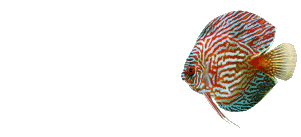
Vitamin D - naturally omnipotent
Vitamin D affects 200 different chemical reactions in the body. It was found in almost all types of human cells and in all human tissues.
You have most probably already read about importance of this vitamin. Vitamin D deficiency is suspiciously common and we often don't even know we suffer from it.
Is vitamin D anti-inflammatory?
Studies have long proven a link between low vitamin D content and a number of inflammatory diseases. In addition, scientists know that improving vitamin D levels can help reduce inflammation in the body. Vitamin D is naturally formed in the skin due to UV radiation from the sun,but not everyone can get all vitamin D.
In addition to the significant support of immunity and cardiovascular system vitamin D also helps us manage stress and at the same time to prevent anxious and depressive states. But that is not all - in the epidemic situation today doctors also recommend this vitamin even in the prevention of covid-19.

The human body receives vitamin D naturally from sunlight. Its synthesis takes place on the basis of the penetration of UVB rays through the skin. This does not occur immediately, but only after 10-15 minutes of sunbathing. The UVB radiation passes through the glass only in 1-8 %, but it penetrates water, especially the sea, to a depth of several meters.
If we had the possibility to sunbathe twice a week for 20 minutes, we would get 90 % of the recommended dose of this vitamin only from exposure to the sun. But it is important not to forget that the amount of vitamin D creation is reduced by the protective creams, frequent baths in hot water, dry skin of the elderly, a large amount of melanin in the skin, veiling the body and air pollution.
To activate immune processes, it is recommended to take approximately 2000 IU (international units) per day. But for some people it is not enough - those suffering from obesity need to take double to triple daily. On the contrary, for children up to a year, only 400 to 500 IU of vitamin D is enough.
In addition, not everyone has the ability of the skin to form vitamin D the same. For example, seniors over 65 years of age would need to spend at least twice as long in the sun to get the same amount of vitamin.
Another option to supply the body with this vitamin is a diet.
Foods rich in vitamin D
- generally fish oil, liver, egg yolk and milk
fatty fish - salmon, trout, mackerel, tuna, herring or eel, fresh or canned (sprats, sardines, tuna) - they are an excellent source of vitamin D
whole cow's milk and hard cheeses. Some milk is enriched with vitamin D artificially. The same applies to some types of soy or rice milk.
lard and bacon
beef liver is also an excellent storehouse of vitamin D and other nutrients, such as vitamin a, iron or protein
eggs (from free-range hens contain up to 5 times more vitamin D than those from caged hens)
wildly growing mushrooms have the ability to make vitamin D2
Generally in milk, dairy products and eggs can happen that the amount of vitamin D is small, because cattle and chickens are most often kept inside, do not have access to sunlight, and themselves suffer from a lack of vitamin D
To take a sufficient daily dose of 1000 IU of vitamin D from food, it would mean to eat one kilogram of butter or 200 grams of salmon, which is difficult to implement. Since 2017 adults are recommended a dose of 2000-4000 IU per day.
It also depends where you live - many countries have not sufficient sunny days during winter time
and therefore it is good to take vitamin D in supplements.


Vitamin D and immunity
Vitamin D helps to activate white blood cells, specifically the killer NK-cells (natural killers), whose main job is defense against viral, parasitic and bacterial infections.
Thus, a sufficient supply of vitamin D helps to strengthen natural barriers. At the moment of strong immunity, even an individual infected with the virus may not feel that a hard struggle is taking place in his body. If it is a virus or a bacterium that the organism knows from the past, it knows how to defend itself. When attacking a completely new and unknown virus, he does not know this, the stronger he needs to have strengthened immunity.
Vitamin D and coronavirus

A survey conducted in Australia found people with low levels of vitamin D were almost twice as susceptible to a more serious course of respiratory infection after being struck by coronavirus, which also lasted longer.
Another study was based on data collected from 20 European countries from spring 2020. Even from in this study is showed that there is a clear negative correlation between the level of vitamin D and the number of cases covid-19, and between the level of vitamin D and the number of deaths with this disease.
Thus, the less vitamin D, the more sick and deceased with covid-19.
We have a proverb
Where the sun does not come, the doctor goes there.
Stay healthy
Margaret
